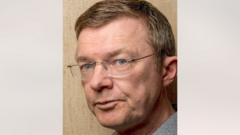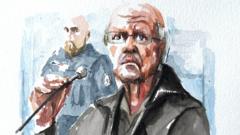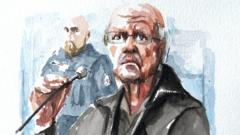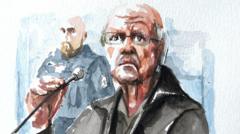"As survivors of abuse at Catholic schools in Ireland come forward, a shocking government inquiry unveils thousands of allegations. These brave testimonies highlight a culture of silence and significant impact on Irish society."
"Voices in the Shadows: Survivors of Catholic School Abuse Speak Out in Ireland"

"Voices in the Shadows: Survivors of Catholic School Abuse Speak Out in Ireland"
"An alarming account of sexual abuse at Ireland's Catholic schools reveals a national crisis as survivors begin to share their painful stories."
In recent years, the silence that surrounded the sexual abuse of former students at Catholic schools in Ireland has begun to dissipate as numerous individuals, primarily men now in their 50s and 60s, have started to share their harrowing experiences. These revelations have sparked a national conversation about the abuse that took place in religious institutions, shedding light on a dark chapter of Ireland's educational history.
A preliminary inquiry launched by the government in September revealed almost 2,400 allegations of sexual abuse in religious schools dating from the 1960s to the 1990s, identifying 884 alleged abusers. Norma Foley, the Minister for Education, described the extensive nature of reported abuse as “truly shocking.” This prompted a comprehensive investigation aimed at confronting this troubling legacy.
Among those coming forward are individuals like John Coulter and Mark Vincent Healy, who have joined survivors' groups to seek justice and accountability for the trauma they endured. The disturbing accounts of abuse illustrate a systemic denial of responsibility from the church and educational authorities, leading to a call for transparency and reparative measures.
Experts suggest the growing number of survivors speaking out will help to dismantle the longstanding taboos surrounding sexual abuse, particularly in relation to masculinity and shame. Tim Chapman, an academic specializing in restorative justice, commented on the profound societal impacts this movement could have, stating, “Their numbers are so big, and the ripple effect of harm must bring some impact on broader Irish society.”
This urgent dialogue continues to evolve, prompting a re-evaluation of the structures that facilitated such a pervasive culture of abuse within religious educational settings. As more survivors share their stories, the hope is to not only confront the past but also ensure that future generations are protected from similar experiences.





















